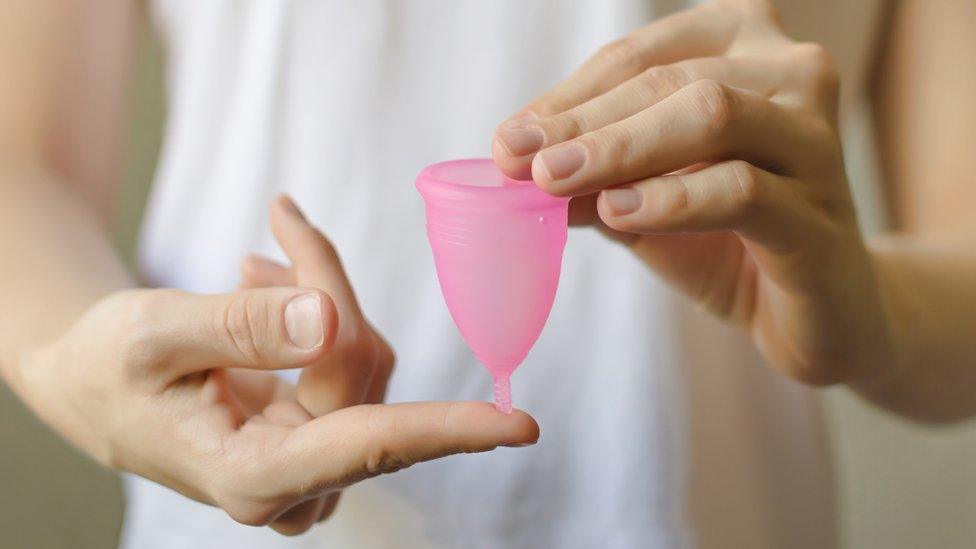Menstrual cups: Stemming the flow of single-use period waste in Scotland
- Published
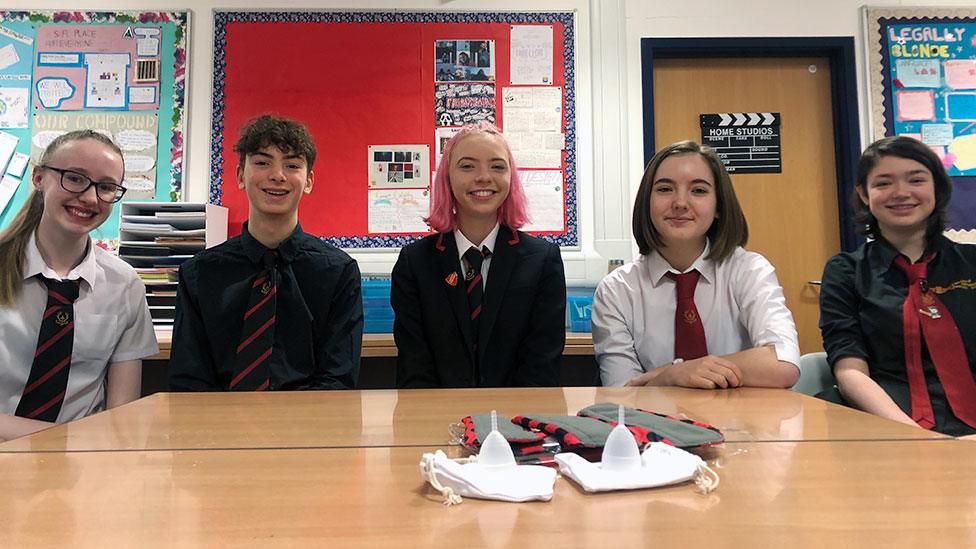
Sophie (centre) is one of the pupils on the Broughton High School menstruation association
When teenager Sophie considered replacing her regular period product with a reusable menstrual cup, she was put off by the price.
But shortly afterwards they were offered for free at her school. After trying them out, she has ditched single-use tampons and pads for good.
Now a new campaign wants to boost use of reusable cups, pads and pants across Scotland by offering them for free.
Organisers hope it will cut waste from single-use tampons and pads.
Hundreds have now signed up for the #TrialPeriod, led by the Scottish government, Zero Waste Scotland and social enterprise Hey Girls.
The £300,000 campaign has been so successful that when it went live earlier this month, the website, external crashed due to huge demand.
In total, more than 2,000 products are being given away to those who applied.
Period products at schools
Pupils at Broughton High School in Edinburgh are among those who have already benefited from free reusable period products.
The school received an allowance from the Scottish government to spend on period products and spent some of it on reusables.
Kim and Amanda explain menstrual cups
Sophie, who is in S6, now uses a menstrual cup she got at school.
She said she had previously been unwilling to make the "initial investment" for a cup - which fits into the vagina and collects period blood.
"When you get it for free, you think you may as well try it," she said. "I think it's something that makes it easier to make the change."
Sophie is one of the pupils on the menstruation association at Broughton High School.
They ensure the school bathrooms are well-stocked with free period products, and they can offer advice to pupils unsure about how to use reusables.
The pupils said the move had been well-received as many students are keen to do their bit to help the environment following the school climate strikes.
Environmental impact
According to Zero Waste Scotland, an average woman will spend about £440 on single-use period products.
By contrast, menstrual cups cost from £9 to £30, and last for up to 10 years.
Zero Waste Scotland say 427m single-use products such as tampons and pads end up in landfill or contribute to marine litter in Scotland every year.
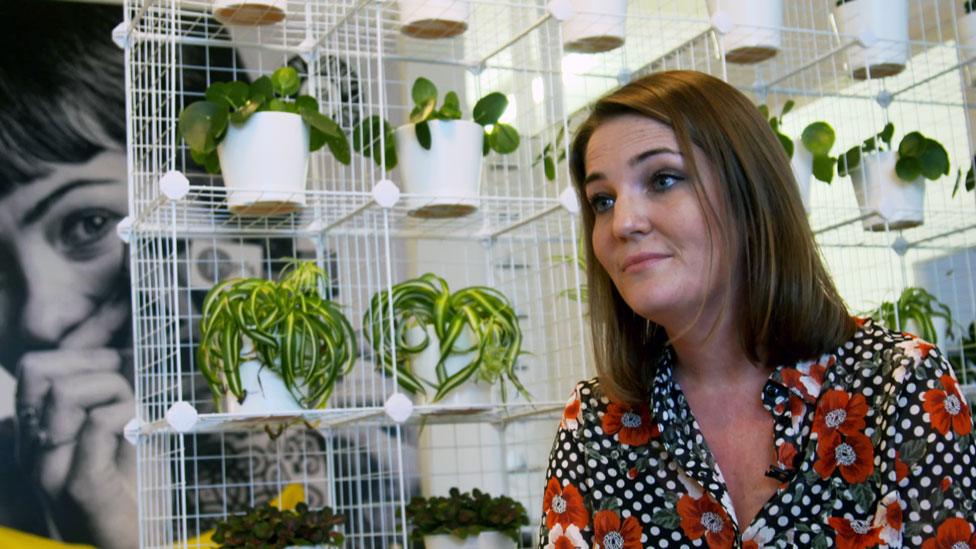
Catherine Bozec switched from disposable to washable pads
Catherine Bozec, who is leading the #TrialPeriod campaign, said she has now switched to washable pads.
"I have worked for Zero Waste Scotland for five years and even working in this environmental field, I hadn't really given reusable period products a second thought until this campaign landed on my desk," she said.
"So about six or seven months ago I made the switch to cloth pads because I was a disposable pad user and I've not looked back since. I love them.
"They're really comfortable, they're easy to maintain and it's great at the end of my cycle to see I have not put anything in the bin."
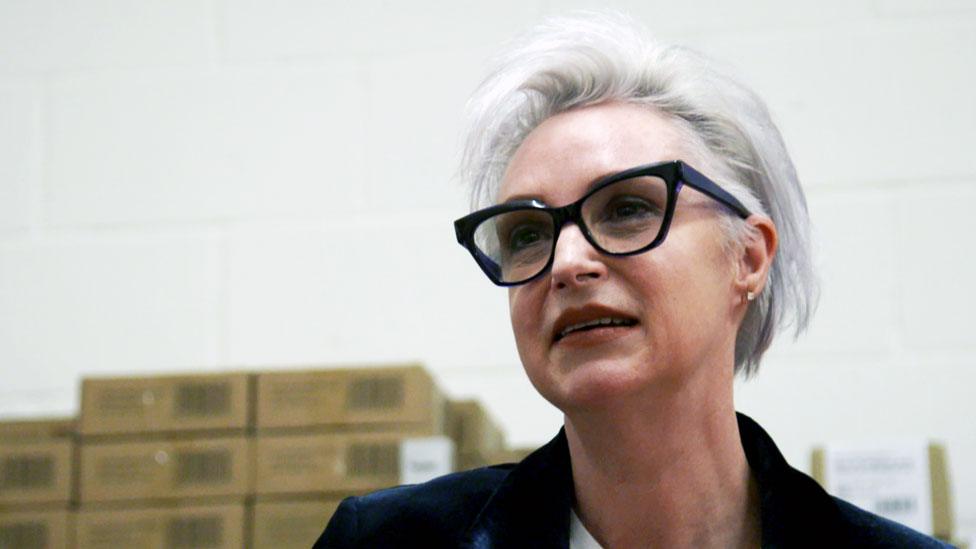
Celia Hodson set up Hey Girls in January last year
Currently about one in 10 women and girls in Scotland are using reusable period products, according to research by Progressive Partnership.
The menstrual cups and cloth pads distributed as part of #TrialPeriod are produced by East Lothian-based firm Hey Girls.
Celia Hodson founded the social enterprise after bringing her own children up while on benefits and learning about period poverty.
For every pack of period products bought from Hey Girls, the firm gives a pack to girls or women who cannot afford to buy their own.
They have donated 6.2m products since setting up Hey Girls in January 2018.
Ms Hodson said: "I can well remember going to the check-out and my shopping basket of groceries coming to £14 and you're looking in your purse and you've only got £12.
"I can guarantee when that happens, mum pops back the shampoo, the menstrual products and those things rather than food and bread, quite rightly.
"So it's not a great situation to be in and the ramifications of that around you, not being the best you can be - often not going out of the house because you're worried about your period. The buy-one-give-one model helps eradicate period poverty."
- Published17 July 2019
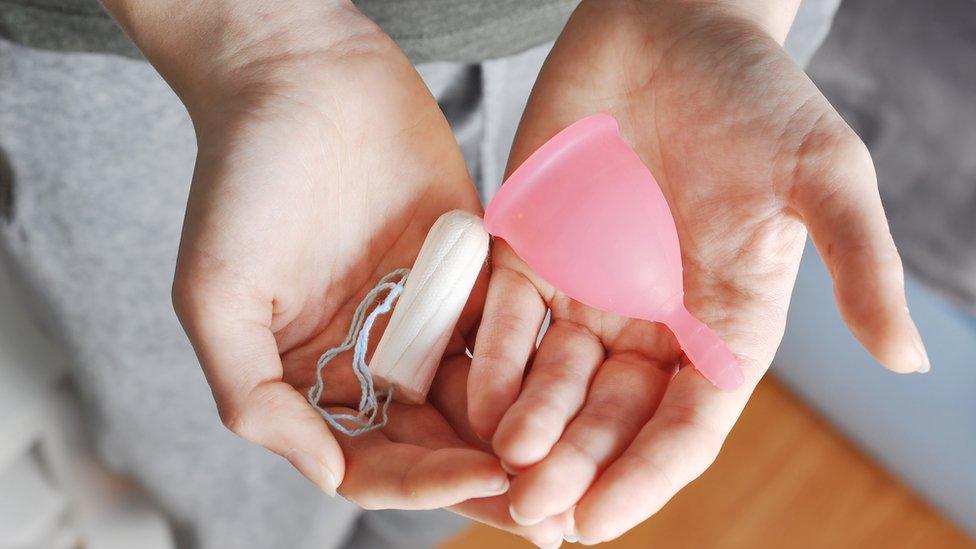
- Published4 October 2018
